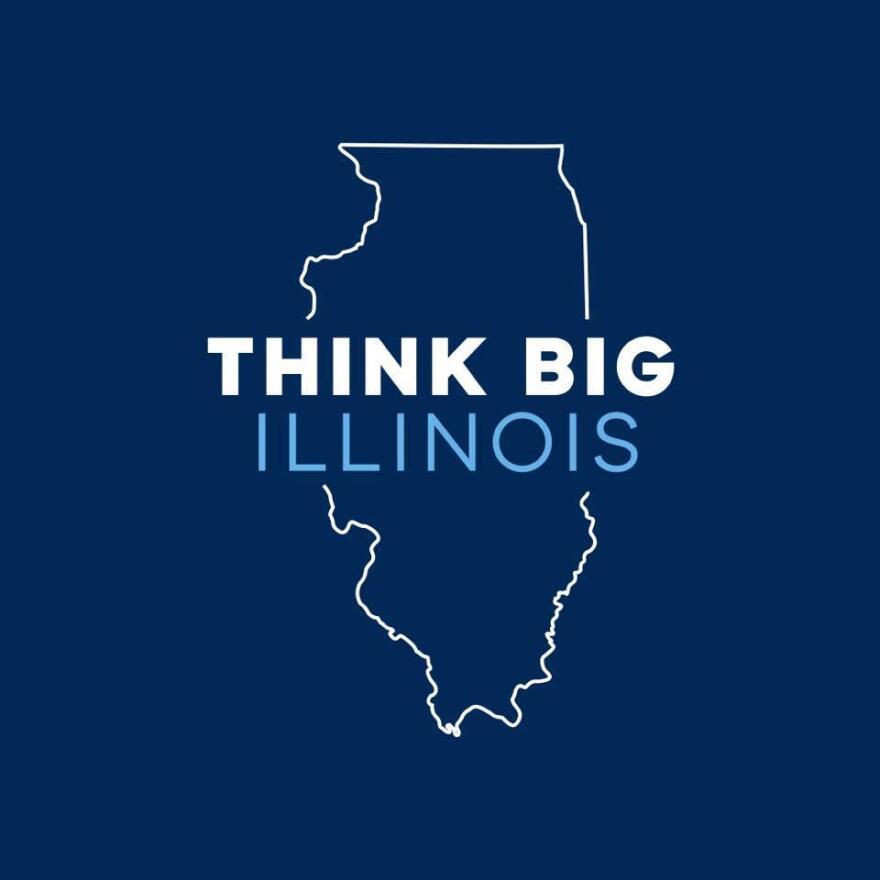A new dark money group in Illinois says it plans to shed some light on what it's doing by voluntarily disclosing the names of its donors.
Think Big Illinois, launched last week to lobby for Governor J.B. Pritzker’s agenda, is a 501(c)(4) nonprofit. That's the kind that can keep donors’ names secret, so they’re often called “dark money” groups. Director Quentin Fulks, who's a former Pritzker campaign aide, calls it an "issues advocacy" group.
It’s estimated that tens of thousands of dark money groups exist across the country, on both sides of the political spectrum. Though the IRS says 501(c)(4)s must be engaged in “social welfare,” these groups can devote up to half their resources to direct involvement in electoral politics.
According to federal election data collected by the Center for Responsive Politics, dark money groups nationwide spent more than $500 million in the last three election cycles.
Though they’re common in politics, Think Big Illinois wants to do something uncommon: release the names of its donors.
Bruce Freed is President of the Center for Political Accountability. He says that’s surprising. But for him, it’s not a question of whether donors are disclosed, but why 501(c)(4)s keep them a secret in the first place.
“Are they afraid they’re not gonna get certain donors?" he posited. "Why don’t they want the public to know, or voters to know, where the money is coming from?”
Think Big Illinois says it will release donor names after it’s filed its first round of taxes. But since the group doesn’t have to file until 2020, it could be years before the list is released.
Freed says it would be better if donors themselves went public before that happens.
“The donors really need [sunlight] for their protection, because the fact is then there’s not a question about the intent or the purpose of their contribution."
Freed says dark money groups keep their donors a secret unless they’re forced to release names. Certain activities federal regulators or state laws deem as overtly political, like electioneering, can require dark money groups to release names. But, Freed says, the IRS has been lax on enforcing those rules.
Though they don’t have to disclose names, dark money groups do have to disclose expenses when they file their taxes. But descriptions of those expenses are often vague, and only have to be reported to election officials if the money is being used to explicitly support or oppose a political candidate.
A dark money group can, however, spend as much as it likes on ballot initiatives. Think Big Illinois says it plans to lobby for Pritzker’s progressive income tax initiative, and could fund a public information campaign on the question if it comes before voters in 2020.
That former Pritzker campaign aide Quentin Fulks founded and runs Think Big Illinois isn't unusual either. Freed says 501(c)(4) leaders can be close associates of public officials. But the association and the name of the group — apparently a direct reference to one of Pritzker's campaign slogans — raises questions about how directly Pritzker himself might be involved.
Questions like that, Freed says, can spell trouble for government leaders.
If you’re a public official and you want to be cleaner than Caesar's wife, and you want to avoid any taint of corruption or any questions about your activities, keep everything above board."
Since Think Big Illinois doesn't have to fully disclose donor names, if and when it does release a list, the public will have to take it at face value.





